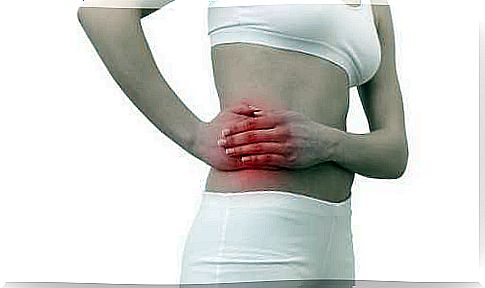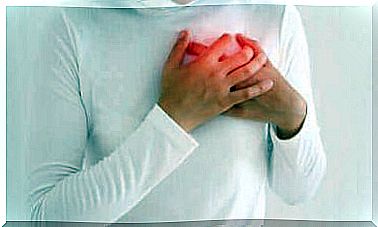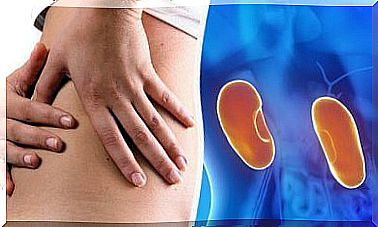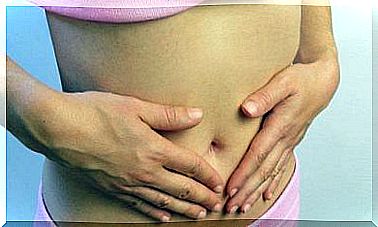Symptoms Of Appendicitis That You Should Recognize

Often, appendicitis requires urgent treatment, so it is important to be able to identify the symptoms of this emergency.
The appendix is a small organ at the beginning of the colon and can sometimes become inflamed. Inflammation can occur in both adults and children. In this article, we will teach you to identify the most common symptoms of appendicitis. So keep reading.
Symptoms of appendicitis

1. Quality of pain
- The pain usually begins in the middle of the abdomen, near the navel, and radiates and gradually moves from it to the right side of the lower abdomen, just above the hip bone.
- When you press from that area, the pain becomes more intense and may feel unbearable.
- Your stomach feels hard. There may be a strange, “full” feeling in your stomach, and when you press your stomach, it feels relatively hard. This is because the rest of the intestines can also become inflamed due to an inflamed appendix, and this can cause serious problems.
- You may feel a stabbing pain in your hip as you walk. The pain is felt only on the right side.
- Your pain only feels relieved when you lie down. Even then, the pain usually only eases momentarily.
- If you feel stinging or burning abdominal pain when you cough, it is a clear sign of inflammation in the abdominal area, and possibly an appendix.
- Keep in mind that if you suffer from any of the above symptoms, they may become so severe after 12 to 24 hours that you need to be hospitalized. Most importantly, if your child has any of these symptoms, and even if it is just a mild symptom, it is a good idea to always see a doctor to get a correct diagnosis of the symptoms.
2. Other symptoms associated with appendicitis
- Fever. This is important. If your senses on the right side of your stomach feel discomfort and your body temperature is elevated, even if it is just a slight heat, see a doctor immediately.
- Constipation. An inflamed appendix almost invariably causes some disorders elsewhere in the gut. So it is not uncommon for it to be associated with constipation. In the toilet, exertion may again cause even more abdominal pain.
- Loss of appetite. You feel uncomfortable and full, and you don’t really make up your mind to eat. Air can also accumulate in the gut that cannot be forced out, making you feel even fuller and more uncomfortable.
- Vomiting, malaise and fatigue. These are also symptoms that are often associated with an inflamed appendix. These symptoms may even appear a couple of days before the abdominal pain becomes unbearable, forcing you to see a doctor. It is therefore worth paying attention to these symptoms as well.
What causes inflammation of the appendix?

- Lymphatic Hyperplasia: This sounds complicated, but basically it’s the same thing that can happen to the lymph nodes in your throat. Lymph nodes play an important role in the body, but when they become inflamed, they swell and make the throat narrower. Such infections are most common in people aged 8-30, and the same is true for appendicitis.
- Slags and toxins: Sometimes slags can accumulate in the intestine, near the appendix, due to their poor removal. This can cause a blockage or inflammation, causing the intestines to no longer function normally. People who regularly suffer from constipation are at a higher risk of developing appendicitis. Eventually, the entire intestine can become inflamed, and this can lead to dangerous inflammation of the peritoneum.
- Inflammation: Very small suction balls coat the walls of the appendix. As we said earlier, they look very much like lymph nodes. Sometimes an illness or even some of the food you eat can cause a bacterial strain to grow and stick to the suction balls, causing them to become inflamed. This is very common, as there are many types of harmful bacteria in the stomach that can trigger inflammation and therefore also appendicitis.
Keep in mind that it is very important to follow a healthy diet. This is not to say that if you always eat healthy, your appendix can never become inflamed, but at least the risk is reduced. Take detoxifying regimens regularly and try to avoid constipation. This is vital to your overall well-being.
Drink plenty of fluids, eat plenty of fiber, vegetables and fresh fruits, and don’t miss out on the properties of probiotics. Foods like Greek yogurt and kefir help maintain the body’s good bacteria that protect against inflammation. You should also enjoy a glass of warm water mixed with lemon juice every morning. This will help cleanse your body and remove toxins, while providing the important vitamins you will need throughout the day.









